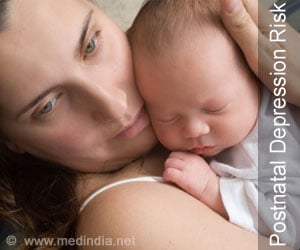Prenatal stress impacts infant stress reactivity and temperament, with boys and girls showing different sensitivity patterns at various stages of pregnancy.
- Prenatal stress impacts infant stress reactivity, with varying effects based on timing during pregnancy
- Stress exposure at different pregnancy stages influences infants’ hypothalamic-pituitary-adrenal axis and temperament
- Gender differences in stress sensitivity were found, with girls affected by stress in mid-gestation and boys in late gestation
Pinpointing the timing of prenatal stress associated with infant biobehavioral reactivity
Go to source) . The study, published in Psycho-neuroendocrinology, is the first to examine weekly stress across 27 weeks of pregnancy to pinpoint when it most affects a newborn’s stress response and temperament — two measures that indicate infant biobehavioral reactivity.
A pregnant woman’s hormones, combined with the natural stretching of skin, causes the “pregnancy glow”. #medindia #pregnancy #hormones’
Impact of Prenatal Stress on Child Health
High levels of maternal stress during pregnancy can increase the likelihood of psychiatric and cardiovascular conditions in the child later in life. Cortisol, a key stress hormone, is important for both the body and fetal development. However, when a woman experiences significant or prolonged stress during pregnancy, excessive cortisol can interfere with the development of the fetus's brain. These disruptions in brain development can result in heightened stress sensitivity in adulthood, as well as immune system issues that may increase the risk of disease later on.“Prenatal stress has a well-established link to negative health, including mental health, outcomes in children and adults, but most studies conclude that the biggest effects are on girls. Our study found that not to be the case. It’s in fact, just different timing,” said Alytia Levendosky, lead investigator of the study and professor in MSU’s Department of Psychology (2✔ ✔Trusted Source
Prenatal stress can program a child's brain for later health issues
Go to source).
Infant Cortisol Levels and Stress Response Evaluation
The researchers recruited 396 pregnant women, specifically from a high stress-risk population due to low income and/or exposure to intimate partner violence. Weekly stress assessments were conducted via email or text from week 15 through week 41 of pregnancy. At six months postpartum, infant cortisol levels were collected before and after a mildly stressful laboratory task to see how their hypothalamic-pituitary-adrenal system, or HPA axis, responded to stress. Mothers also reported on infant temperament.Differing Stress Sensitivity Patterns Between Genders
The study found periods of higher sensitivity to stress in both mid and late gestation but found that girls and boys had differing patterns of sensitivity. The data showed that experiencing stress in mid-gestation affected girls’ HPA axis and temperament, while late gestation stress impacted boys. Previous studies in this field stopped their last stress assessment between 32-34 weeks. Because this study ran through week 41, Levendosky and her team were able to locate the time that was most sensitive for boys.“This study is an essential step in correcting our understanding around prenatal stress effects for boys and girls,” said Joseph Lonstein, investigator on the study and professor in MSU’s Department of Psychology. “We hope that our findings inspire additional research so we can better understand what is happening in fetal brain development across pregnancy and how it is affected by stress.”
In conclusion, this study shows that the timing of prenatal stress, not gender, influences infant stress reactivity and temperament, with different sensitivity periods for boys and girls. The findings challenge previous assumptions and call for further research into prenatal stress effects on fetal brain development.
References:
- Pinpointing the timing of prenatal stress associated with infant biobehavioral reactivity - (https://www.sciencedirect.com/science/article/abs/pii/S0306453025000915?via%3Dihub)
- Prenatal stress can program a child's brain for later health issues - (https://www.heart.org/en/news/2021/05/06/prenatal-stress-can-program-a-childs-brain-for-later-health-issues)
Source-Medindia
















